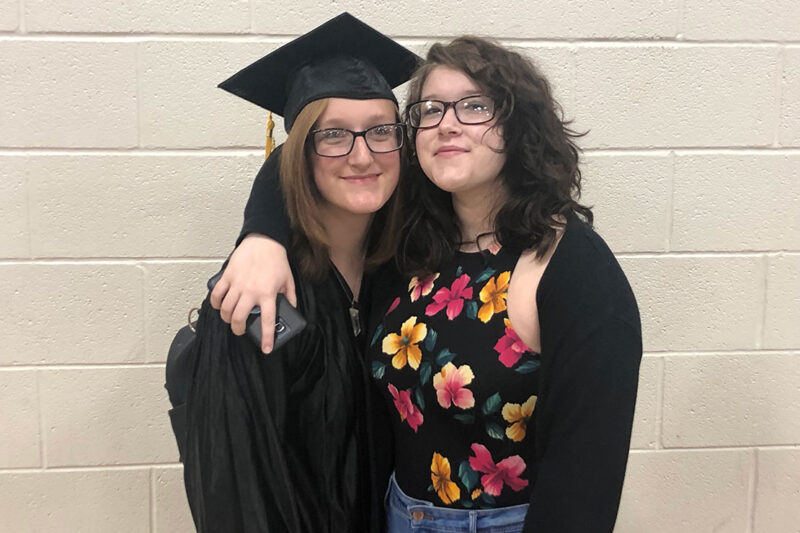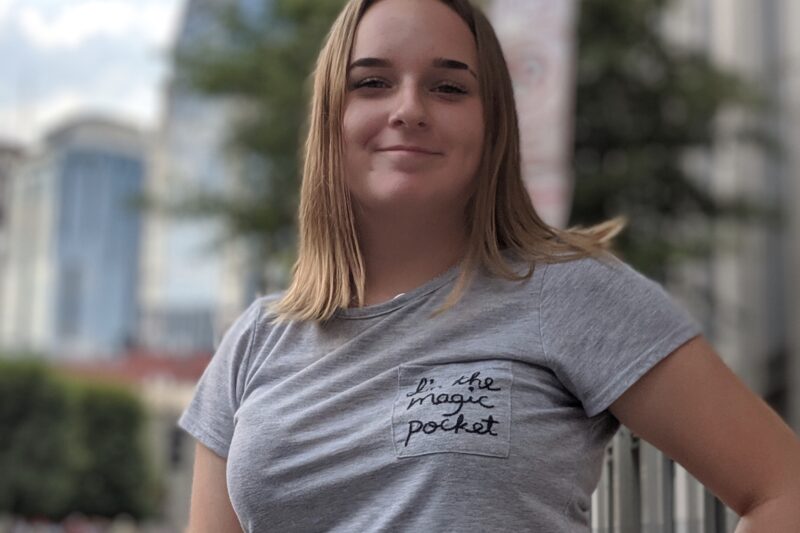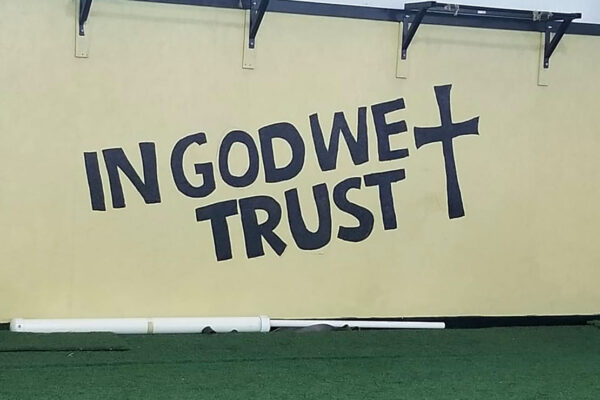The ACLU and the ACLU of Tennessee filed a lawsuit against the Smith County School System for violating the separation of church and state on Monday. According to the lawsuit, four students who are atheists have had to contend with school officials promoting Christianity through official prayers, Bible distributions, religious posters, and even a giant cross painted in one of the school’s athletic facilities.
We asked our three high school clients in this case — Harleigh,
Leyna and Pyper — to tell us about their experience, their friendship, and why
they decided to sue their school district.
What has your school
environment been like for you?
Harleigh: Overall, it’s really uncomfortable. You feel like
you don’t fit in at all.
Leyna: To be honest, it’s kind of awkward having to deal
with everybody making it seem like you have to believe in one thing, just like
them.
Pyper: Mostly it’s just uncomfortable and feeling like you
don’t fit in.
Atheists and nonreligious
people are one of the most rapidly growing groups in the U.S., yet they still
face significant mistrust and discrimination. Are you worried about this
lawsuit revealing to your peers and those in your community that you’re
atheists?
Harleigh: I feel like if we do, we’ll be seen as mistrusting
or misleading, or a bad influence. I haven’t really talked about it except with
my close friends, to be honest, and most of them are atheists.
Leyna: I don’t really hide it because it’s not really something
that I should hide. Everybody can express their religion. Why shouldn’t I be
able to express the fact that I’m an atheist?
Pyper: I’m not really that worried about it because most
people already know that I’m not religious.

How has your
friendship helped you get through a school environment that has been hostile to,
or at least not very welcoming to, non-Christians?
Harleigh: You kind of have someone to talk about it with,
you know?
Leyna: It’s definitely more reassuring to know that we’re
able to talk about it. I can’t just look at somebody else and be like, “Oh,
this is kind of wrong, what [school officials] are doing, because most people will
look back at me like, “What are you talking about? This is normal.”
Pyper: Yeah, you always have some to talk to about it. And then
at school when something happens [with promoting religion], you have someone to
tell.
Pyper, you are a
member of the girls’ soccer team. Your coach has directed team prayers before every
game. What was your initial reaction when it first happened?
Pyper: I was kind of confused on why we’re doing it because
not everyone is religious on my team, and I feel like [the coach] knows that,
so I was confused.
Did you ever think
about telling the coach you didn’t like it or that it was inappropriate?
Pyper: I thought about that but I didn’t want to be benched
or kicked off the team.
Harleigh, as a member
of the marching band, you have to attend every football game, and all the home
games start out with a prayer over the public address system. What type of
message do you think that sends to you, the other students, and the community
members who are gathered for the game?
Harleigh: I feel like it’s almost like it’s coercing
everybody to be the same. I feel uncomfortable because I feel like I’m the only
one sitting there not participating.
Leyna and Pyper, when
you were in middle school, two school officials who were responsible for
promoting religion also made some anti-LGBTQ remarks. One told fifth and sixth
graders last year that same-sex relationships would not be tolerated. Another would
scold students who discussed same-sex crushes. What was your reaction?
Pyper: I was just
kind of shocked that the straight people can express their feelings about a boy
or a girl but LGBTQ people can’t do the same.
What are you hoping
will happen as a result of this lawsuit?
Harleigh: I want to feel like I can go to school and not
feel like I’m not a part of what is happening. Or go to a football game and not
feel uncomfortable for the first 20 minutes. I want to do normal teenage things
at school without feeling like I don’t fit in.
Pyper: Just wanting to fit in. When you’re not bowing your
head, people look at you weird.
Leyna: I respect other people’s religion, and I would like
it if everyone else would respect my beliefs.

What advice would you
give to other teens that are facing similar circumstances at their public
schools?
Harleigh: Find a good group of friends that you do fit in
with that have the same beliefs as you and don’t feels so coerced by everybody
else.
Pyper: Probably just not be scared to speak up to say what
you believe in.
When you three aren’t
doing school activities or standing up for your rights, what do you do for fun?
Harleigh: I like to draw a lot and paint. I’m into
surrealism.
Pyper: I like to take pictures.
You’re a photographer
for the school yearbook, right?
Pyper: Yes, ma’am.
Are you hoping that
this lawsuit will make it easier to attend school events as part of your yearbook
photography duties?
Pyper: Yes, ma’am.
Leyna, what do you
enjoy doing when you’re not busy with school and fighting for your rights?
Leyna: I usually do my makeup or I cook something.
What would you say to
someone in this situation who can’t find a group of like-minded friends?
Pyper: Don’t try to be someone you’re not just to have a
group of friends.

